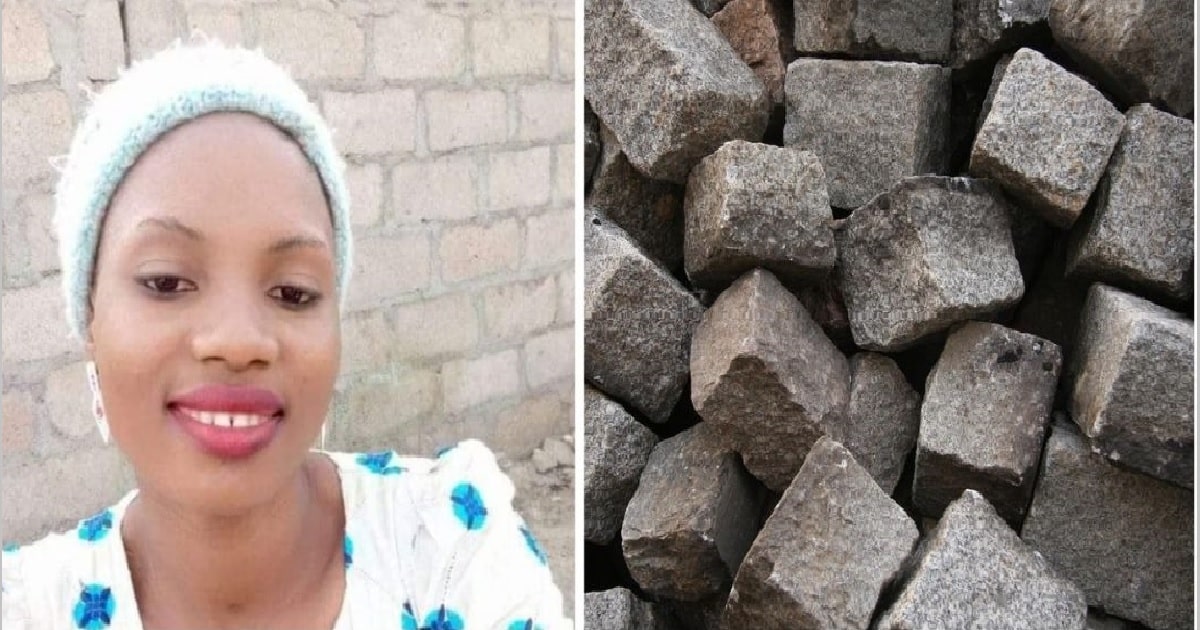Stones, Blood And Fire As Deborah Samuel Is Murdered In The Caliphate
- Steve Ogah
- World News
- Africa
- Trending
- May 15, 2022

Stones, Blood And Fire As Deborah Samuel Is Murdered In The Caliphate
“Who kills in name of god
leaves god without a name.”
—Prof. Wole Soyinka, 1986 Nobel Laureate in Literature.
Thursday’s stoning to death and eventual burning of Deborah Samuel at the Shehu Shagari College of Education in Sokoto state, the feted “Seat of the Caliphate,” has once again thrown to the fore huge divisions along ethnic and religious lines in Nigeria. Perpetrators of the murder believe the deceased student insulted Mohammed, a prophet of Islam and proceeded to taking her life in the cruelest of circumstances and recorded it in Technicolor-like moments of bestiality, public video evidence has shown.
While the civilized world is appalled at this gross act, the killers of the young student and their fanatical supporters are busy celebrating their dark glory and epiphany of inhumanity. One expects the law to interpret what happened on that dark day, 12 May, in northern Nigeria and see to justice for the dead, living and our common humanity. But we must remind ourselves of certain facts. Our collective civilization is in great danger. Religious accord and even irreligious harmony can never be attained on the altar of stones, blood and fire.
Writing in Samarkand and Other Markets I Have Known (2002), the Nobel Laureate, Prof. Wole Soyinka, has insisted in his customary poetic elegance that: “who kills for love of god kills love, kills god/who kills in name of god leaves god without a name.” Soyinka’s poetic message must be lost, surely, on those who preach violence and those who perpetrate it so barefacedly and these are those he has expressively isolated as “the self-assured of paradise.”
No one will see God by killing another. No one will enter paradise by killing God’s creatures. Rather, it is by saving one another and loving that we become one with God. Even the irreligious ones are making a mockery of those who now kill because of their beliefs! And they now seemingly ask: “wouldn’t it be better, golden and treasured to be irreligious and not sin and kill, than to be religious and kill?” Would someone give them an answer, please?
Former democratic president, Alhaji Aliu Shehu Shagari(1925-2018) who governed between 1979-1983, must be turning angrily in his grave that a barbaric act took place in an institution that bears his revered name. The current Catholic Bishop of Sokoto diocese, Most Reverend Matthew Hassan Kukah, has an intimate view on Shagari. In his 2000 engaging essay, “Religion and State Failure in Africa: A Nigerian Perspective,” the gifted and revered catholic intellectual opines: “It can be argued Alhaji Shagari adopted an integrationist posture in religious matters. He was anxious to see peaceful coexistence between the religious groupings in Nigeria, especially Christians and Muslims. He gave both the late Dominic Ekandem and Archbishop Gabriel Ganaka one of the nation’s highest awards. It was the first time such a gesture was ever conferred on any Church personnel in the country. His invitation to the Holy Father to visit Nigeria and his composure during the visit sent out the right signals to Christians in Nigeria. Soon after the Holy Father’s visit (February 11-14, 1982), President Shagari inaugurated the Ethical Revolution Committee in an attempt at lifting up the moral tone of politics in Nigeria. His critics who pooh-poohed the idea have not offered this nation any better rudder for taking this nation away from the morass of moral decadence.”
Bishop Kukah is concerned like most people are, about the destructive use of religion in Nigeria and elsewhere. This is what he reflects in these words from the above view: “The introduction of religion into African politics has created enormous problems and to a large extent has contributed in truncating the project of democracy. This has been more manifested in Algeria, Egypt and Nigeria in varying degrees. Our concern in these reflections is with the Nigerian situation.”
The dead student is not the only victim of that barbaric act. The school and society at large are victims of zealotry and mindless savagery. Deborah Yakubu lives on in Shehu Shagari College of Education. Her ashes are on that ground, her blood is splattered all around the place, and her breath perfumes the air those who walk that ground now breathe. Her spirit hovers around the school she loved and went to acquire knowledge. Indeed, her name will be mentioned whenever the history of that institution is written.
How can she be dead? in a figurative sense, a monument already stands on that spot she keeled over. And it’s a tribute to courage, defiance and martyrdom in the face of a physically overwhelming force of evil. We must remind those who stoned and burnt Deborah of the words of Wole Soyinka in the book referenced above, “the zealot’s counterfeiting hand did not triumph.” Indeed, it has never triumphed! Rest in peace, where the good ones do, Deborah Yakubu Samuel.








